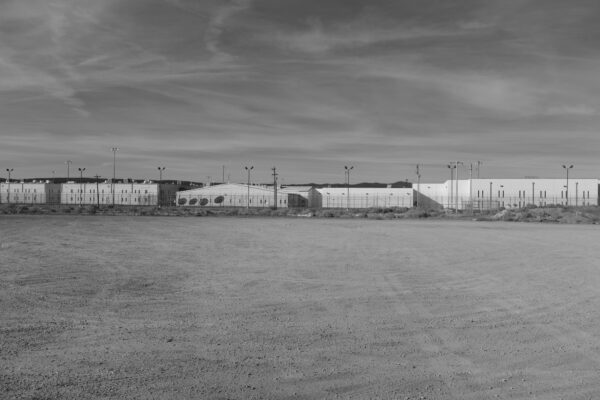Originally published in the spring 2018 Torch
Fourteen months ago Manuel Pérez* lay on the ground unconscious in the sloping mountains of Sierra de los Cuchamatanes, Guatemala. His skull was fractured. His teeth were broken. And his brain was hemorrhaging blood.
For nine long hours, he remained unconscious, his life hanging in the balance.
Six men had beaten Manuel to within an inch of his life with a bat and a large rock because he is of Mayan descent, a historically brutalized and displaced indigenous group. For nine long hours, he remained unconscious, his life hanging in the balance.
Manuel survived, but he was in critical condition and afraid for his life. He knew that to avoid further persecution and violence, he would have to seek safe sanctuary outside of Guatemala.
He soon fled with his young son and sought withholding of removal—immigration relief that is similar to asylum—in the United States, where he has a sister and a brother who are lawful permanent residents. He hoped to start over in a land where he wouldn’t be targeted because of his ethnic identity; where he would be free from violence.
Manuel was wrong.
When he entered the United States, the government separated Manuel from his son and threw him into civil immigration detention at Cibola County Correctional Center without a bond hearing, even though he arrived in the country with a traumatic brain injury. Operated by for-profit prison company CoreCivic, formerly the Corrections Corporation of America, Cibola is notorious for medical neglect.
For months on end, Manuel has suffered from severe pain, vertigo, loss of vision, persistent headaches, and cognitive difficulties. His conditions have severely worsened since he was first detained.
In December, the ACLU of New Mexico filed a Petition for a Writ of Habeas Corpus on behalf of Manuel, petitioning a federal district court to order his release from prolonged detention so that he can access the critical care he needs to treat his injury.
“It is unconscionable for our government to detain a person without a bond hearing and with grave neurological trauma for nearly a year,” said ACLU of New Mexico staff attorney Kristin Greer Love. “Denying him care, while CoreCivic profits from his prolonged detention, is cruel and unjust.”
“It is unconscionable for our government to detain a person without a bond hearing and with grave neurological trauma for nearly a year,” said ACLU of New Mexico staff attorney Kristin Greer Love.
Despite a neurologist’s recommendation that he get specialized care outside the facility, US Immigration and Customs Enforcement (ICE) has twice denied parole that would allow him to access medical treatment.
ICE’s denial is part and parcel of the Trump administration’s practice of indiscriminately denying parole and bond to asylum-seekers and other vulnerable people. Shortly after taking office, Trump issued an executive order entitled “Border Security and Immigration Enforcement Improvements,” directing the Department of Homeland Security (DHS) to use all legally available resources to build and operate detention facilities to hold immigrants at or near the U.S.-Mexico border. The order further directs the Secretary of DHS to take immediate measures to ensure that arriving immigrants be detained for the duration of their immigration proceedings and to limit parole only to circumstances in which “an individual demonstrates urgent humanitarian reasons or a significant public benefit derived from such parole.”
As a result, ICE officials have engaged in a pattern of detaining asylum-seekers and people seeking withholding of removal for prolonged periods without regard for their particular circumstances, including whether or not they are a flight risk or pose a danger to the community. Even in cases where asylum-seekers win their court cases and are granted release by a judge, the U.S. government often appeals the decision, prolonging detention for as long as possible.
A Human Rights First report released in September 2017 reveals that ICE field offices across the country that formerly released some eligible asylum seekers on parole, now “rarely, if ever” release them from detention on parole. The report cites examples of asylum seekers that include: a West African man persecuted because of his sexual orientation who was held for over fourteen months, even though his brother is a U.S. citizen; a Venezuelan human rights lawyer whose family members were tortured, killed and dismembered for their political affiliation who was held for six months; and a torture survivor from Burkina Faso who was detained for over 17 months.
Asylum-seekers who have fled unimaginable circumstances in their home country are treated as criminals, not as human beings deserving of dignity and respect. Rather than offering them safe refuge and protection from violence, the United States is increasingly subjecting them to new forms of cruelty and injustice.
One of the most callous acts of cruelty is separating border crossing parents from their children. To this date, Manuel has not seen his young son, who is now in the care of his sister. Countless other children, who fled horrific circumstances in their home countries, have been detained separately from their parents at a time when they need them most. While the administration has not yet released a formal directive ordering family separation, according to Michelle Brané, Director of the Migrants Rights and Justice Program at the Women’s Refugee Commission, there have been at least 429 cases.
These measures are no accident.
Few experiences cripple the human spirit more than that of prolonged captivity or separation from loved ones. The Trump administration deliberately engages in these cruel and inhumane practices ostensibly to deter people from seeking asylum or withholding of removal.



